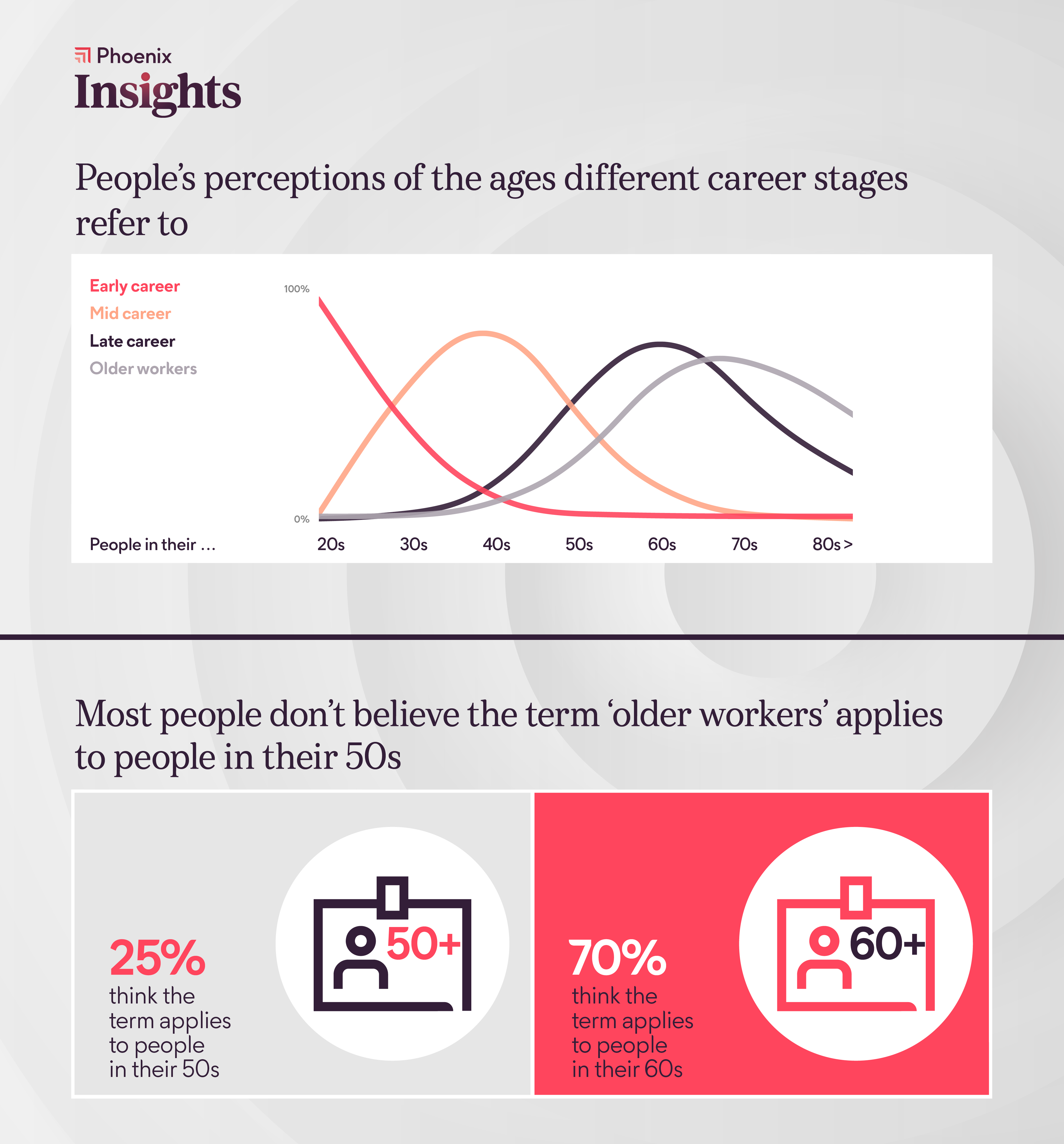If age needs to be explicit, then we would recommend for people to be more factual and age specific.
The term "workers in their 50s and above" had stronger appeal (54%), with only a small minority (10%) actively saying they found the term unappealing.
This is important because amongst people working in age diversity and employability, the phrase older workers has come to commonly refer to people 50+. The research highlights that using this phrase amongst the general population, will cause confusion, as most people don't think it refers to people aged between 50-60.
Across Phoenix Group we have used these findings to support colleagues, particularly those working across Diversity, Equity & Inclusion, internal and external communications, public affairs and sustainability, to phase-out our usage of the term 'older workers' and to replace it with more factual age-based descriptions wherever possible.
Could your business or organisations do the same? Get in touch if you want to find out more.













